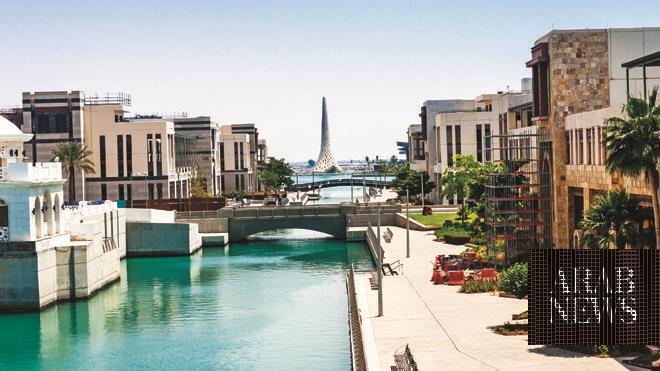
JEDDAH: A researcher at King Abdullah University of Science and Technology (KAUST) has received a top international award for his contribution to global marine science and the Kingdom’s ambitious Red Sea tourism project.
Carlos Duarte, a professor of marine science, Tarek Ahmed Juffali Research Chair in Red Sea Ecology, won the Frontiers of Knowledge Award in ecology and conservation biology granted by the Banco Bilbao Vizcaya Argentaria Foundation (Fundacion BBVA) in Spain.
Prof. Duarte, who is of Portuguese origin, has taken part in several global research campaigns as part of his efforts to expand knowledge about marine biodiversity and its role in shaping environments around the world.
The award was made in recognition of his leadership role in research related to the problems of global marine science and his contribution to the Saudi Vision 2030 reform plan.
Expressing his delight at receiving the “prestigious” accolade, the professor highlighted the major role played by KAUST in promoting his work and supporting efforts to preserve marine ecosystems.
“It (the award) could be rightly called the ‘Nobel award’ of ecology and biodiversity, with a distinguished international jury selecting among the top ecologists in the world,” Duarte told Arab News
“For the award to be presented to me represents, therefore, a huge honor and a great recognition, not only of my work, but to that of the dozens of students and hundreds of collaborators that have contributed to my research over the years, as well as my institution, KAUST, for its unparalleled support and intellectual freedom to pursue the best research I am able to deliver.”
He pointed out that the launch of Vision 2030 had been an historic event setting the Kingdom on a path to a bright future.
“I was contacted in 2016 to provide advice on how the giga projects that are being developed in the Red Sea could become drivers of positive marine conservation outcomes.
“I was immediately challenged and captivated by the notion that development, which for decades has been a driver of destruction and biodiversity loss in the marine environment, could be reverted, with the right vision, motivation, commitment and scientific support, into a driver of a rebound of marine life in the ocean,” the professor said.
He noted that the commitment of Crown Prince Mohammed bin Salman to marine conservation was “a model for leaders worldwide.”
Duarte added that he was “proud” to have been involved in the Red Sea project and said that tourism development and a national transformation program, such as Vision 2030, could be drivers of a game-changing shift in the recovery of marine environments.
He said his work had “led to new thoughts on the role of the private sector in rebuilding marine life, which I am about to publish. It also makes me proud of contributing through my research to develop this aspiration in Saudi Arabia.”
Duarte also collaborates and supports sustainability, marine conservation, and design work on the Amaala and NEOM mega projects.
He is currently leading an initiative to enhance sea turtle conservation in the Red Sea that is jointly funded by the Red Sea Development Co., Amaala, NEOM and KAUST. “These sea turtles move all across the Red Sea and represent a shared asset that is everyone’s responsibility to protect,” he added.
He noted that global recognition of Vision 2030 would be taken to a new level in the run-up to the Kingdom hosting this year’s G20 summit of world leaders.
“The principles that drive and inspire Vision 2030 will not only propel the development of the Kingdom but will also help other nations adopt concepts developed within KSA, such as the use of development to drive ocean conservation, developed by the Red Sea project, or the circular carbon economy, a concept put forward in October 2019 by Energy Minister Prince Abdul Aziz bin Salman as a new approach to solve the climate crisis while avoiding disruptive economic impacts to societies that could hurt the disadvantaged and create social unrest,” Duarte said.











